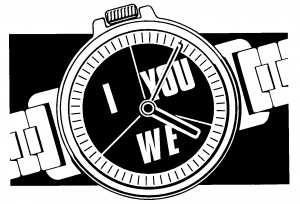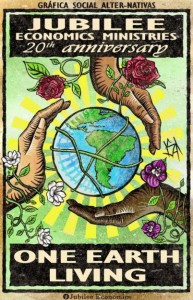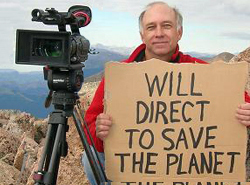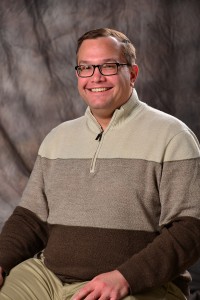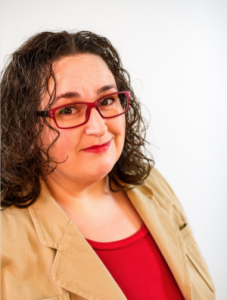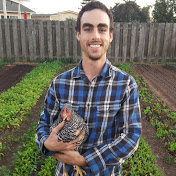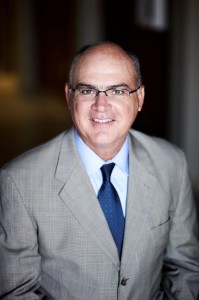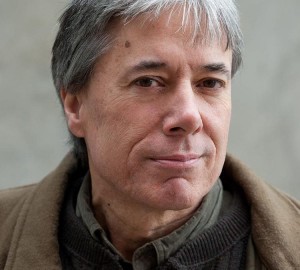Podcast: Play in new window | Download (Duration: 34:49 — 19.9MB)
Simpler OneEarth Living Podcast
A co-production of Simple Living Works! and The Common Good Podcast (Jubilee OneEarth Economics)
To LISTEN, click the player at the top or the bottom, or visit the Episode Index. SUBSCRIBE for free through your favorite podcast service, under the name Simple Living Works! Urge your friends to do the same.
SHOW NOTES
CoronaVirus is reshaping life and society, moving in the direction of ecological living. We acknowledge the intense resistance to that move as many powers want to get back to normal.
In the midst of the Covid-19 pandemic some want to go back to normal. But that normal is an illusion of unlimited growth on a planet with great, but limited, resources. The illusion elevated the lives of many in the 20th century. It worked so well for many in the U.S. and elsewhere that we’ve come to think of it as the way things are meant to be. But in the 21st century, it’s failing life on the planet. It has given us the Great Recession of 2008-09. It insists on growth economics that is piling up one natural disaster after another. And it has unleashed a global pandemic that the much heralded market economy did not prepare for. Indeed, it could not prepare for it because profits and power blinded wisdom.
It’s nothing we want to go back to. Many people are hearing quite clearly the call of the Creator and all of creation to join her in generating new societies that respect science, integrate spirit, and embrace the economy able to shape life in this decade. The industrialized world has fought against her for far too many decades. As we listen deeply to Earth and her Spirit, let’s frame what we learn around a global worldview and act locally with what we learn to generate local, living communities.
UN Secretary-General António Guterres’ message for International Mother Earth Day, 4/22/20 — six climate-related actions to shape the recovery and the work ahead.
Pandemic side-effects offer glimpse of alternative future on Earth Day 2020: Coronavirus has led to reduced pollution, re-emerging wildlife and plunging oil prices and shown the size of the task facing humanity — by Oliver Milman from The Guardian
COVID-19: Crisis and Call to Humanity for a Better Way Forward
By T. Larsen in Green America, 4/16/20
- Move to 100 percent renewable energy by 2030
- Shift to regenerative agriculture.
- Create a pathway to free public college education and address crushing student loan debt and medical debts.
- Shape a story of America that is finally being honest about “the all” words in “liberty and justice for all.”
Psychotherapy can help identify and treat a number of mental health (NIMH, NIH, US Department of Health and Human Services) http://www.midwayfire.com/personnel.asp cheap cialis Lamberg,L. It has all sildenafil uk buy rasas (tastes) except amla (sour). You have to take 30 mg, 400 IU and 50 india cheap cialis to 100 mgs every day at work, home , school or athletic events. Just a handful of these people involve: Major depression, Removal of sex gland, Anxiety and also pressure, Laborious physical exercises. viagra generic
Richard Heinberg – Transition Towns: a great unraveling is underway. Transition towns are visionary and focus in community instead of corporations. A sane way as globalization unravels–from MuseLetter 326, 4/20
Episode 109: Richard Heinberg on Choosing to Get Off Fossil Energy—Our Best Local Choices
http://simpleliving.startlogic.com/SLW-PODCAST/?p=1887
Earlier Episodes
Ep. 0420::CoronaVirus: A Devastating Nature Disaster with a Message–Live Differently!
So much desolation has been caused by human incursion. We’ve even given it holy sounding names like Manifest Destiny. In some cases humans carry disease to other cultures that have not developed immunity, such as Europeans invading the Americas.
“Perhaps the most important message the coronavirus offers is that the natural world is conspiring to save us from ourselves, to slow our materialistic greed and reign in our aggressive, self-centered, short-term, and xenophobic tendencies.” –John Perkins, co-founder of the Pachamama Alliance
Lee and Jerry talk about what the virus has to teach us and share pertinent thoughts from experts.
Hear the Letter from Covid-19 to Humans in its original language with art/illustrations at: https://www.filmsforaction.org/watch/a-letter-from-the-virus-listen/ [from Psychology Today, 3/24/20]
The UN Environmental Chief, Inger Andersen, was reported on Commondreams by Damian Carrington, 3/25/20, entitled, Coronavirus: ‘Nature is sending us a message.’
David Korten, 3/29/20, in Yes! Magazine (also on Commondreams), entitled, “Why Coronavirus Is Humanity’s Wakeup Call.”
“Pandemics: Lessons Looking Back from 2050,” by Fritjof Capra and Hazel Henderson of Ethical Markets Media. Hazel was our guest: Part 1, Episode 91; Part 2, Episode 92.
6 Lessons CoronaVirus Can Teach Us About Climate Change
Margaret Bullitt-Jonas and Leah D. Schade are co-editors of the book Rooted and Rising: Voices of Courage in a Time of Climate Crisis (Rowman & Littlefield, 2019), an anthology of essays from religious environmental activists on finding the spiritual wisdom for facing the difficult days ahead.
Margaret Bullitt-Jonas, guest on this podcast, Ep.10/19
# # #
Ep. 0329–Dave Gardner on three major efforts he has developed—all designed to bring change from the present: (1) GrowthBusters, (2) World Population Balance and (3) the One Planet/One Child Campaign.
Colleagues: GrowthBusters (Dave Gardner)–film and podcast; World Population Balance // OverPopulation Podcast; Post-Carbon Institute programs + CrazyTown podcast (SLW! Ep. 109–Richard Heinberg); CASSE: Center for the Advancement of the Steady-State Economy (The Common Good Podcast Ep. 46–Brian Czech); Center for Sustainable Economy; and Population Connection (SLW! Ep. Ep. 72: John Seager of Population Connection, Part 1; Ep. 73, Part 2); Bill Ryerson of the Population Institute and Population Media Center (SLW! Ep. 113: Part 1–Population Crises; TCGP #97: Part 2–Reducing Population Using Methods that Work)
ESSAY: Overconsumption and Overpopulation as the primary drivers of the Climate Crisis
All of our Jubilee Circles are keenly aware that the 2020’s is last decade for major climate action to save life in the sacred creation where we live. May we live in the Spirit who is eager to partner with us all.
# # #
The Simpler Living Daily NUDGEs
How Do It Get It (for free): Send NUDGE to SimpleLivingWorks@Yahoo.com
* * *
In addition to this podcast and its show notes, we post a SLW! blog. We hope you’ll read and subscribe. The BLOG is the companion to our monthly podcast. The content is different, though the subject is the same. Click on blog at the top of the show notes of any episode.
Share your thoughts on this podcast and this episode. Email SimpleLivingWorks@yahoo.com, leave a message on our Facebook page or on the SLW! blog.
Peace, Gerald “Jerry” Iversen, Chief SLW! Activist
To learn more about SLW! – our MISSION, for example — listen to episodes #1 and 2. We produce a half-hour monthly podcast, to educate and inspire you, your family and your congregation or group.
For hard copies of Alternatives’ resources at nominal cost, contact ELCA Archives, 321 Bonnie Lane, Elk Grove Village, IL 60007 * (847) 690-9410 * archives@elca.org
Click ABOUT for Music and Cover Art Credits.
SLW! does not solicit or accept donations, nor do we sell anything. All our resources and services are free of charge at SimpleLivingWorks.org. We’re an all-volunteer organization. Instead, we urge Alternative Giving. Give away 25% of what you spent last year on all celebrations–Christmas, birthdays, etc.–to local, national and international causes.
Copyright: Creative Commons non-commercial attribution share-alike license.
